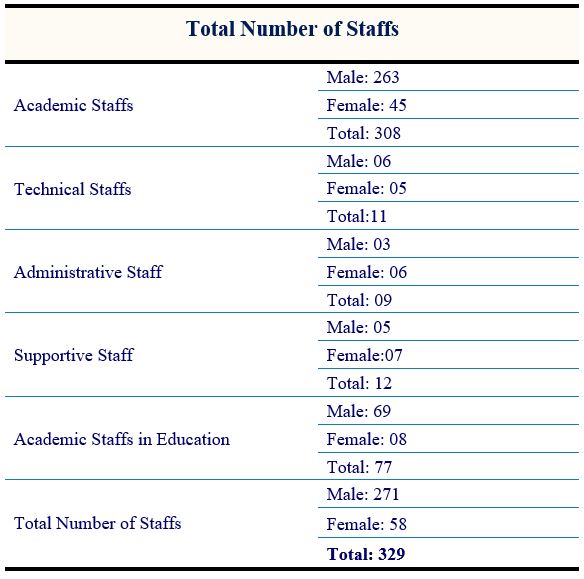COLLEGE OVERVIEW
The College of Health Sciences (CHS) is one of five academic colleges at Debre Tabor University (DTU). CHS, the oldest college in DTU, was launched in 2013 and is a large, diverse, and dynamic part of the university, bringing together professionals from various health science fields. CHS. The college was born with three programs and has maximized its capacity to offer quality education in twenty-three programs that led to recognized degrees. At present, CHS has an outstanding position in the education development agenda of the country because of its philosophy and hybrid innovative curriculum that integrates public health, biomedical science, and clinical activities from the first year of study to the end. It is proud to serve the country as a pioneer in the development of a hybrid innovative curriculum.
With its inspiring staff and aspiring students, CHS strives to provide higher education with impact and positive benefits for education development via the three major pillars (teaching-learning, research, and community service) of DTU. At large, CHS inherits DTU’s motto, “Debre Tabor University has a historical duty to answer Emperor Tewodros’s quest for knowledge,” and exerts its best in investing in the future to support the country’s development.
MISSION, VISION AND CORE VALUES
Mission: to produce highly qualified health professionals that would meet the present and future priority health needs of the country.
Vision: to be one of the best health sciences colleges in Ethiopia by 2030.
Core Values: committed to its core values: quality in all, innovation/creativity, attractive, clean and green environment, peace and integrity, partnership, devotion/dedication, teamwork and team spirit, and good governance.
FACULTY AND STAFF
In line with the goal of the university, CHS continues to extend the boundaries of knowledge, skills, and resources for health science professional development, being a key player in the growing network of medical and health sciences. The college provides quality education in health sciences and produces professionals equipped with multidimensional and critical thinking skills.
To supply demand-driven quality education, CHS implemented a hybrid innovative curriculum and problem-based teaching-learning educational strategy, striving to search for knowledge and help society through teaching, research, and community services. The essence of the hybrid innovative curriculum is an integration of programs, as it reflects real-world experience more accurately and learning tasks to make more sense to students following the actual world, we live in. In addition, community-based education offers a commonsense approach to linking living and learning; students find and solve problems of the community. Problem identification and solving teaching-learning approaches also require interdisciplinary knowledge and skills, thus professionals and/or experts with various fields of study should be involved in disciplinary integration.
Curricular Aspects
College of Health Sciences was born in 2013 with three undergraduate programs, namely Medicine, Anesthesia and Midwifery. Despite the multidimensionality of the challenges that happened and is happening nationwide and worldwide, the college has shown a proud moment in terms of educational development and expansion of study fields, most importantly in the past two years. At present, CHS offers quality education in medical and health science field of studies in twenty-three programs: ten undergraduates, thirteen postgraduates and three specialty programs (Table 1).
Table 1. Academic Programs (field of studies & degree Levels)

Educational Philosophy and Strategy
The college has passionately examined calls for quality education and developed a hybrid innovative curriculum that depends on its educational philosophy; competency (outcome) based, built on strengths of the previous old curriculum. It incorporates innovative and transformative features, adapted to the Ethiopian context to sustain quality education, research and empowering indigenous knowledge, need-based community service and technology transformation as core strategies. In line with this, CHS implemented hybrid innovative curriculum that integrates problem-solving form of teaching-learning method that provokes critical thinking and charges up for something new. The college carefully weighed that implementing the curriculum is vital as it was adapted to the country’s context, competency or outcome-based, built on strengths of the old-style curriculum, incorporating innovative and transformative features based on SPICES model. Therefore, CHS is inspired to implement the curriculum, believing that such an innovative approach is a means to address the arguments about quality education.
Teaching and Learning Methods
- Interactive lecture
- Problem-based learning
- Term paper presentation
- Case based learning
- Project based learning
- Role play
- Case study
- Case Based Discussion
- Simulated practice (skill lab)
- Clinical Practicum/practice
- Seminar
- Academic essay writing
- Community-Based Education
- Community visit
- DTTP which includes CBTP
- Laboratory practice
- Portfolio-based learning
- PRRE
- Journal club
- Individual research
- Whole group session/review meeting
Assessment Methods
Quality Improvement
Monitoring and Evaluation
Staff Profile of College of Health Science
Table 2. Total number of staff of CHS (2023)

